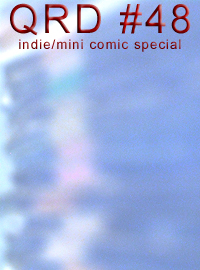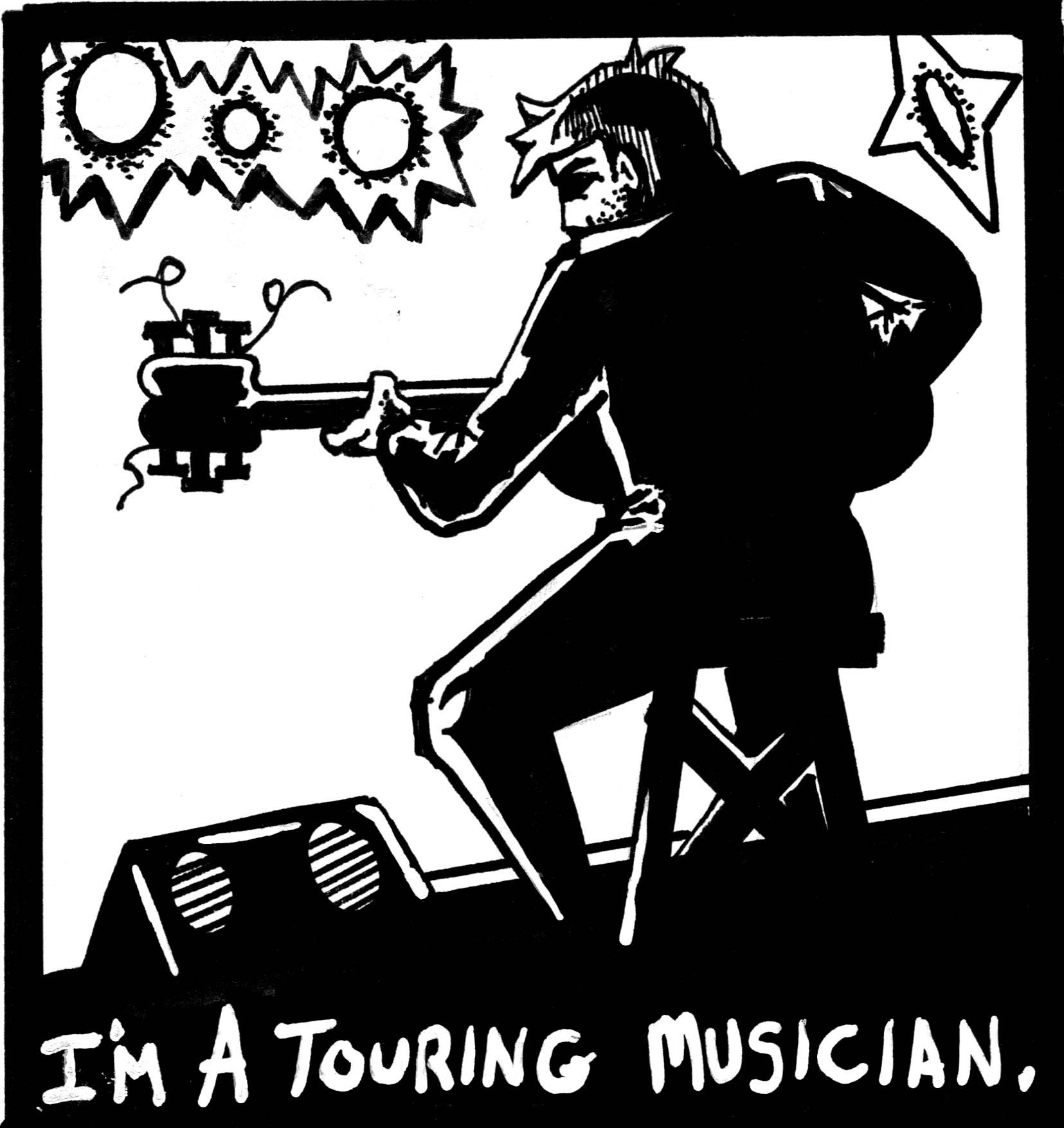







February 2011

City: Des Plaines, IL
Comics: One Year in Indiana, HURR
Websites: www.pungentbasementart.com, www.ok-panic.net
QRD How old were you when you first got into comics & did you always stick with them or did you come back to them?
Kurt I started in the 6th grade & I never totally left the church of the graphic novel.
QRD What was the first comic book you ever bought?
Kurt X-men #164 with Ms. Marvel turning into Binary during the Brood series.
QRD How old were you when you put out your first comic?
Kurt 35.
QRD What decade do you think produced the best comics?
Kurt 70s.
QRD Why comics instead of just writing or drawing?
Kurt Comics/cartoons/Sunday funnies have been a staple in my life forever, so its in my blood.
QRD Do you see mini-comics & indie comics as paths to mainstream comics or as their own unique media?
Kurt First it was a path into mainstream, but after a little while & seeing how many great things were going on in it I just wanted to be a part of that.
QRD How many copies of your comic do you print in your first run?
Kurt Twenty-five.
QRD How much do you think comics should cost?
Kurt $1.00-$3.00.
QRD How many books do you produce a year & how many would you like to?
Kurt 100-200 a year. Id like to produce as many as people buy exactly.
QRD Do you think stories should be serialized or delivered as complete works?
Kurt I like both.
QRD How are comic strips different than comic books & which medium do you prefer?
Kurt I prefer book stories. But there is an art to doing strips & being able to get a point or joke out in three-four panels.
QRD How long is it from when you start a comic until its printed?
Kurt It seems like forever. A little less than a year.
QRD What do you better with your comics now than when you first started?
Kurt I am faster than I use to be.
QRD At what point in the artistic process do you work digitally?
Kurt All my lettering & I have messed around with coloring.
QRD What do you think of digital comics & webcomics?
Kurt I think that they are great. If I could figure out how to do that stuff thats where Id be.
QRD Do you prefer working in color or black & white?
Kurt Black & white.
QRD How many different people should work on a comic & what should their jobs be?
Kurt As many as necessary to do the job. Im kind of a control freak when it comes to my own ideas, so I like working alone most of the time.
QRD How do you find collaborators?
Kurt Mostly conventions.
QRD How tight do you think a script should be as far as telling the artist what to draw?
Kurt Too tight of a script gives me anxiety attacks, but too loose makes me panic cause I am not sure if Im getting the right idea.
QRD What comic book person would you be most flattered to be compared to?
Kurt Any of them.
QRD What do your friends & family think of your comics?
Kurt I surround myself with people that are immersed in the geek lifestyle so everybody is great. I have a super awesome supportive wife who has put up with a lot of stuff over the years.
QRD What do you think of superheroes?
Kurt Largely they have been done to death (some a couple of times), but I have seen some pretty good stuff done with the big heroes the past couple of years.
QRD Marvel or DC?
Kurt Marvel.
QRD What comic characters other than your own would you like to work with?
Kurt You name it. Im open to it all.
QRD Ideally would you self-publish?
Kurt It seems to work out pretty well so far, but getting my book out to far away lands might be nice. I think I need someone to help with that.
QRD What conventions do you try to attend & why?
Kurt At this point its all about if I can travel easily to them.
QRD What do you do to promote your books?
Kurt Facebook, webpage, & conventions.
QRD Do you think your comics are well suited to comic shops or would sell better elsewhere?
Kurt I hope comic shops.
QRD What other medium would you like to see some of your comics made into (television, film, games, action figures, etc.)?
Kurt One tiny step at a time please.
QRD Do you consider yourself a comic collector or a comic reader or both?
Kurt Im a Reader, but I am having trouble finding room for the stuff I read.
QRD What do you see as the most viable mediums for comics distribution 10 years from now?
Kurt It all seems to be going online right?
QRD What would you like to see more people doing with comics?
Kurt Using the medium to its fullest potential. Take time to make good stories & creative art. Make your book look different.
QRD Anything else?
Kurt Comics are fun.







